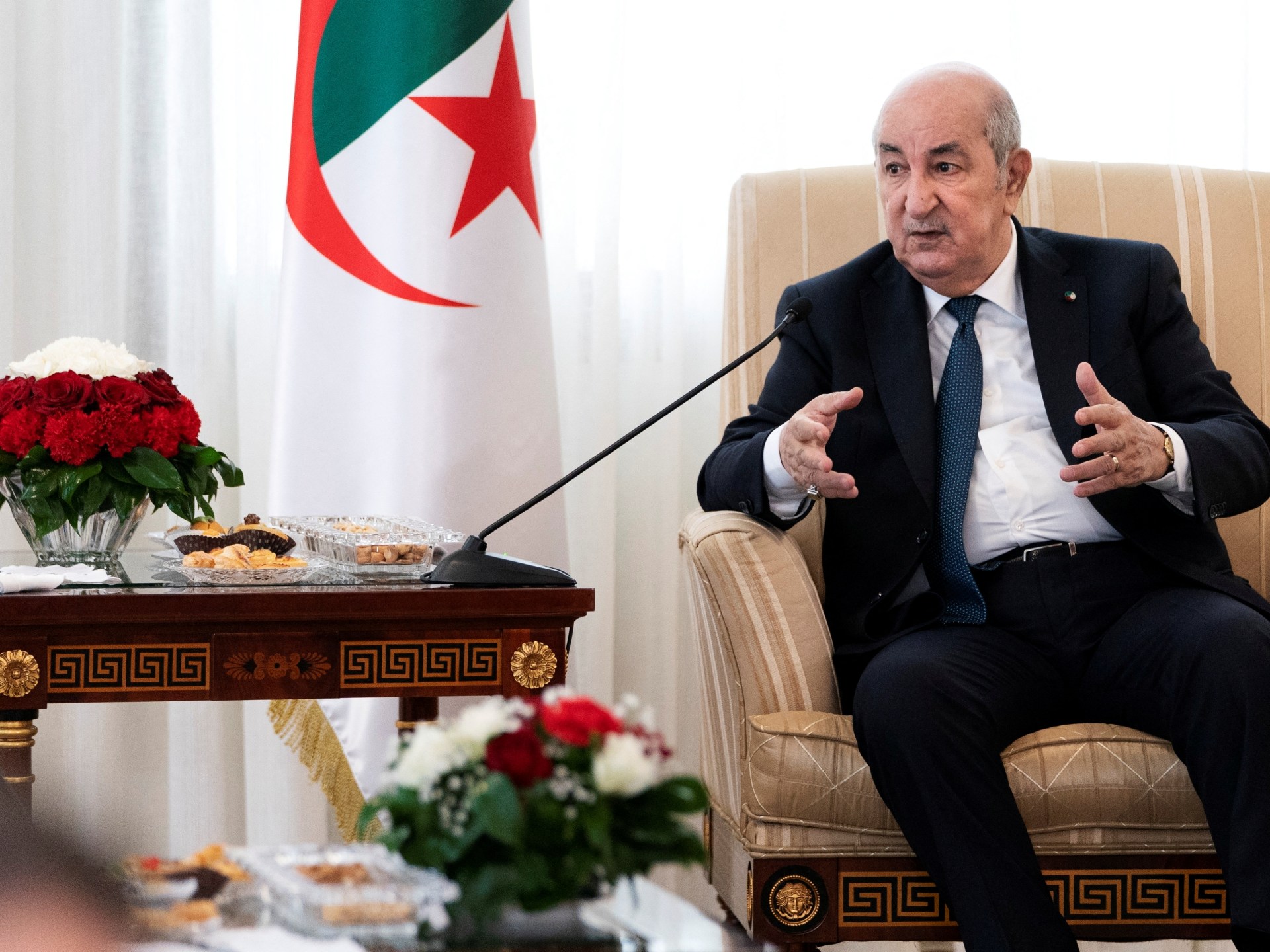Tebboune said that the time has not yet come to talk about the possibility of running for a second term (Reuters)
Algerian President Abdelmadjid Tebboune confirmed that the decision to hold pre-presidential elections on September 7, 2024 - that is, 3 months before their scheduled date - came for “pure technical reasons,” refusing to say whether he would run for a second term.
In an interview with local media yesterday, Saturday, Tebboune said that the postponement was “for purely technical reasons and does not affect the conduct of the elections.”
He added, "The basic logic of this change is that December is not the real date of the elections. We know that after the resignation of the late President Abdelaziz Bouteflika, the President of the National Assembly assumed the presidency and a date was set for the elections, but unfortunately they did not happen," referring to the postponement of the elections from April 2019 to December 2019 during the popular movement that pushed the former president to resign.
The Algerian president ruled out "any crisis at the top of the hierarchy of power" regarding his stay or departure, refusing to announce the possibility of running for a second term, and said, "The time has not yet come."
On March 21, the Presidency of the Republic announced, in a statement issued following a special meeting chaired by Tebboune and attended by the Prime Minister, the heads of the two chambers of Parliament, the Chief of Staff of the Army, and the President of the Constitutional Court, that “pre-presidential elections will be held” on September 7, 2024.
The last presidential elections were held on December 12, 2019, in which Tebboune won, obtaining 58% of the votes.
On the economic side, Tebboune stressed that Algeria relies heavily on agriculture “to achieve self-sufficiency and not import food products except as much as needed.”
He stressed that Algeria's gross domestic product will reach $400 billion in the first quarter of 2026, compared to about $200 billion in 2023.
Source: Agencies

